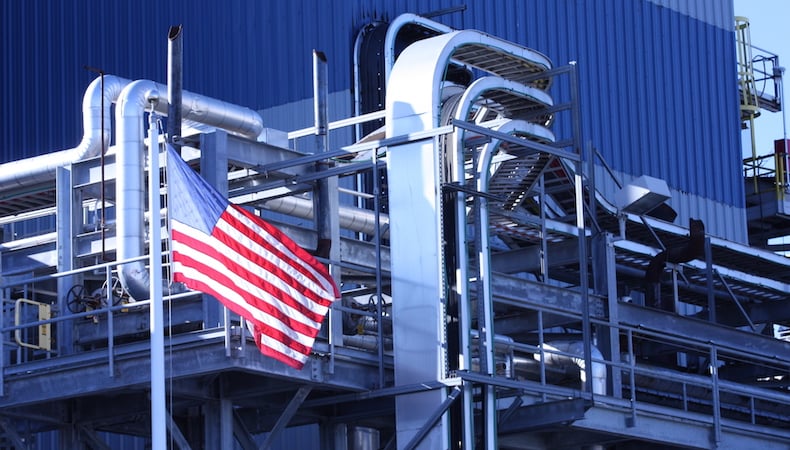4 Ways Reshoring Remains A Win for American Manufacturing

International trade tensions have brought heightened awareness to reshoring. Recent US-China decoupling and talk of the imposition of substantial tariffs, among other things, have many U.S. manufacturers reviewing their overseas relationships.
What is raising some eyebrows, however, is the urgency with which reshoring is being met. After all, reshoring isn’t a new concept. What makes the present different from the past?
The answer is both simple and complicated because it’s framed in the “new normal” of international trade agreement upheaval and lingering repercussions from the COVID-19 crisis. However, American manufacturers are seeing opportunities to improve new products and existing offerings, services, and bottom lines in four key areas by bringing projects and jobs back to domestic soil.
1. Supply Chain Resiliency
Supply chain instability is a major obstacle many American manufacturers grapple with as it relates to offshoring. The global pandemic exposed the considerable risk and cost of over-reliance on overseas suppliers.
To course correct, decision makers in many U.S. companies weighed the option of reshoring. In 2021 – a particularly volatile time in global supply chain disruption – 96% of CEOs either seriously evaluated reshoring or took action on it.
In 2023, reshoring and nearshoring continued to gain momentum as more stakeholders took up the topic with CEOs, as shown in Figure 4 within the Kearney report, Made in America: Here to Stay?
The results of the pivot are evidenced in streamlined supply chains that generate greater flexibility in response to market demand and more reliable logistics.
Moving into 2025, reshoring may also prove helpful in diminishing the impact of potential tariffs and stricter trade policies. Having domestic supply networks could help curtail higher costs, lower margins, and the reality of manufacturers raising consumer prices to ultimately absorb tariff increases.
2. Improved Cost Management
Potential tariffs aside, a longstanding argument in favor of overseas outsourcing is labor cost. As few as 10 years ago, China had manufacturing costs at least 30% lower than those in the United States.
However, the advent of automation, the flexibility/scalability technologies offer, and decreased domestic energy costs have tipped the scales toward reshoring. Not unlike material and product sourcing, having local control of budget allocation gives manufacturers an advantage similar to that they were receiving by outsourcing.
It also provides opportunities for U.S. manufacturers to manage capital investments in beneficial ways, including further automation to overcome skilled labor challenges and facility modernization. In 2023, about $250 billion of the overall $900 billion in capital goods investments went to new factory construction, representing a 73% increase over 2022 and a whopping 136% increase over 2021.
3. Faster Turnaround Times
Separate from the 2020 turbulence, outsourced project delivery is often subject to arbitrary timelines, which makes for possible conflict in an increasingly On Time Delivery (OTD) world. Time zones and cultural differences may put production schedules in flux. Defective products may necessitate a re-run. Shipping — already commonly taking weeks — could easily be waylaid by missed deadlines, weather, or other intervening events.
Local supply chains mean local suppliers, and manufacturing lead times are dramatically shortened. Further, having access to key supplier and injection molder partnerships — like that offered by Kaysun — allows manufacturers to leverage expertise that can also shortcut turnaround times.
4. Quality Control
Product and service quality — or lack thereof — is a risk many companies have been willing to take when offshoring. Implementing quality control often did not offset the savings on labor and operating costs. The rub, though, is the added expense of increased product defects, recalls, safety issues, and legal actions.
The breadth and severity of the global supply chain disruption was instructional. Offshore factory suspensions or other product restrictions caught 35% of manufacturers off guard, with 8% reporting a related surge in costs of goods. The scramble to respond put manufacturers in the position of foregoing quality standards to curb impact.
As U.S. manufacturers reshore operations, quality is a non-negotiable for fabricated materials — including injection molded parts. It’s imperative to seek out custom injection molders with quality assurance practices in place, and the expertise to support related supply chain, cost management, and operational efficiency goals.
Our white paper, Exploring Reshoring: Insights for Manufacturers, provides comprehensive tips and tools for determining if reshoring is your next step, and how injection molders could play a pivotal role. Click below to download your copy.
Subscribe
TO OUR BLOG

How Do Injection Molder Partnerships Influence Project Costs?
You Might Also Like...

Top 3 Custom Injection Molding Trends to Watch in 2025
Despite being considered more energy efficient and producing less waste than other…
READ MORE

Molder Effectiveness: Market Specialization or Supplier Diversification?
For companies that require tight-tolerance, sophisticated plastic injection moldin…
READ MORE

4 Ways Regionalization Strengthens U.S. Manufacturer Supply Chains
Recent years have brought a fair share of challenges to global manufacturing and c…
READ MORE
